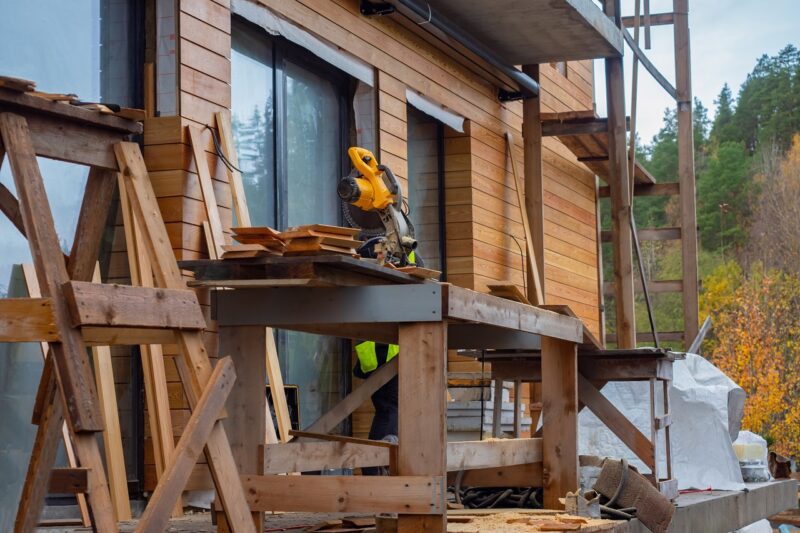Published: 25/11/24 By: Mike Bekin
Timber cladding can drastically improve the aesthetics and performance of a building, bringing a naturally insulating material to your exterior walls. However, in order to reap all the benefits of cladding, you need to know how to install it properly. This includes ventilation and, critically, whether or not your timber cladding needs to breathe.
Does Timber Cladding Need Ventilation?
Yes, all timber cladding needs adequate ventilation if you want it to last. No matter if it is top-of-the-range Canadian Western Red Cedar or a budget-range Thermodified Redwood, without decent airflow, your wood will struggle to dry after rain, quickly leading to problems with rot, swelling and boards which push against each other.
Ventilation effectively lets your timber cladding boards breathe, releasing the moisture held within the wood back into the atmosphere. It also leaves space for water to drain away, preventing the build-up of liquid for a longer-lasting timber.
How Do You Add Ventilation to Timber Cladding?
Timber ventilation is created when there is a gap between your boards and the underlying wall. To leave this space, timber battens are used to extend your cladding from the wall ever so slightly, with the TDCA recommending a minimum gap of 6mm for effective ventilation.
You will then need to add insect mesh to an opening between the cladding and the wall, stopping insects and small mammals (such as mice) from crawling into the gaps behind your timber boards.
A waterproof breather membrane is also essential. This should be placed behind your timber battens, keeping the underlying wall completely dry.
Benefits of Ventilated Timber Cladding
Adding ventilation to your exterior timber cladding is an extra step, but one which is well worth taking. The benefits of well-ventilated timber boards include:
- Enhanced durability – Timber which is able to release moisture is going to be more durable, increasing the longevity of your timber cladding.
- Insulation properties – By providing an air gap between your cladding boards and your home, you can enhance the natural insulation properties of timber.
- Reduced maintenance – Well-ventilated timber is less likely to run into problems, including rot and splintering caused by swelling boards. This vastly reduces the amount of maintenance your cladding will need over time, thus lowering the costs associated with upkeep.
- Aesthetic appeal – Timber which is able to dry properly is going to look fresher for longer. This increases the aesthetic appeal of your cladding, making it a smart way to spruce up the exterior of your building.
Find Cladding Boards at EcoChoice
At EcoChoice, we supply high-quality timber cladding boards sourced from responsibly managed forests. Before taking on a DIY project, give your cladding a headstart with timber boards you can rely on.
Learn more about our timber cladding. To start an order, get in touch with our team today.
Tags: timber cladding, ventilation
Categories: Insights
